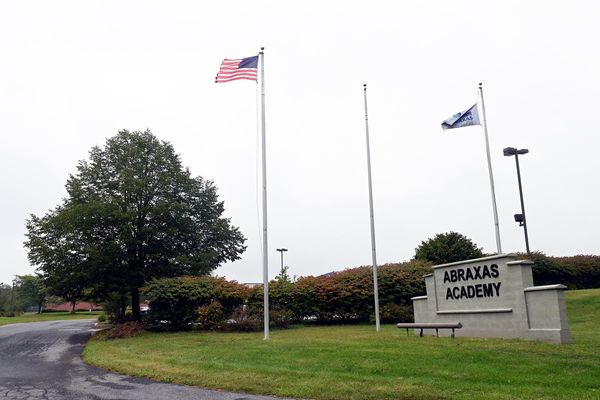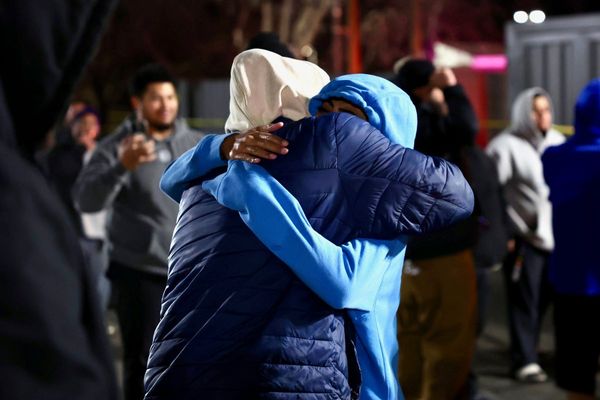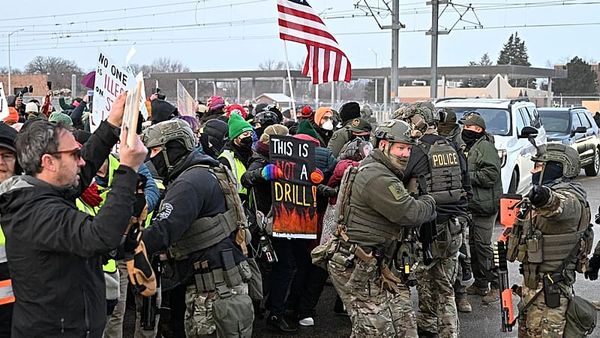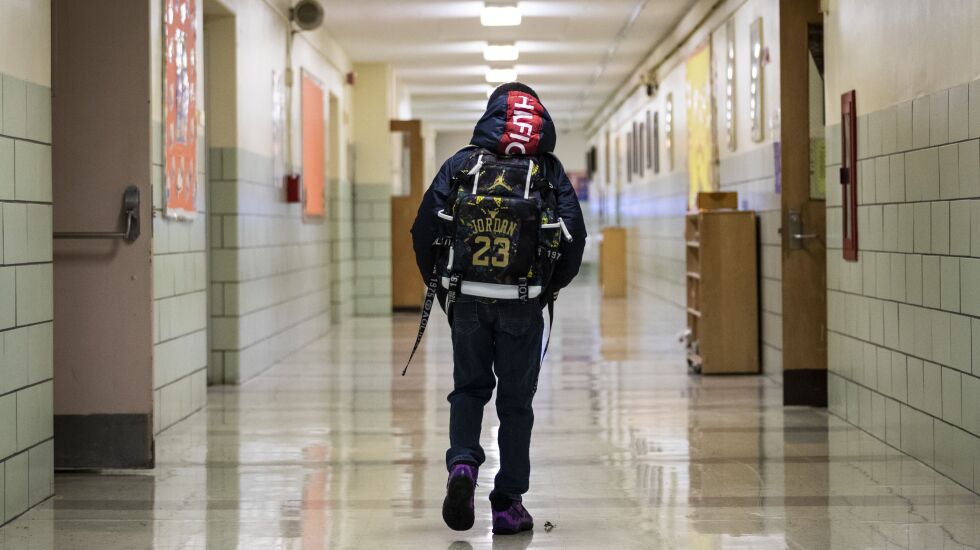
Every year since she’s been in office, Mayor Lori Lightfoot has shifted millions of dollars in new education-related costs to Chicago Public Schools that were long part of the city’s budget, a growing financial burden that for the first time this year will not be fully covered by other funding from the city.
The mayor and her allies view the changes as a necessary byproduct of the looming move to an elected school board in which CPS will be independent from City Hall and no longer the mayor’s responsibility. Lightfoot’s administration also has said the changes are about “ensuring that each sister agency pays its fair share and is self-sustaining.”
Critics believe Lightfoot is prematurely strapping CPS with expenses it can’t afford, leaving it with less money to spend on students and classrooms when officials say the need for pandemic recovery is high.
No matter the timing, officials say the situation is exacerbated by longstanding structural problems in the nation’s fourth-largest school system that could lead to dire choices in the next few years once federal pandemic relief funding runs out. Unless CPS secures a huge source of new revenue, it could face a deficit of a whopping $600 million, a new report predicts.
Even the mayor’s handpicked Chicago Board of Education members fear devastating consequences for families and educators — possibly including school closings and mass layoffs — just as Chicago’s elected school board takes power.
“The new board will find itself in a situation where they have to make some very, very tough decisions,” Board of Education President Miguel del Valle said Friday.
Del Valle and the school board voted earlier this year to take on millions in education-related expenses from City Hall. He still supports that move. But he has sounded the alarm on the financial hole he and his colleagues could be leaving for future leaders, who take power in 2025, the year a school-closing moratorium ends.
“I don’t want them to fail. I don’t want them to have to turn around and begin talking about closing schools. We don’t want that type of thing to happen,” del Valle said before the vote.
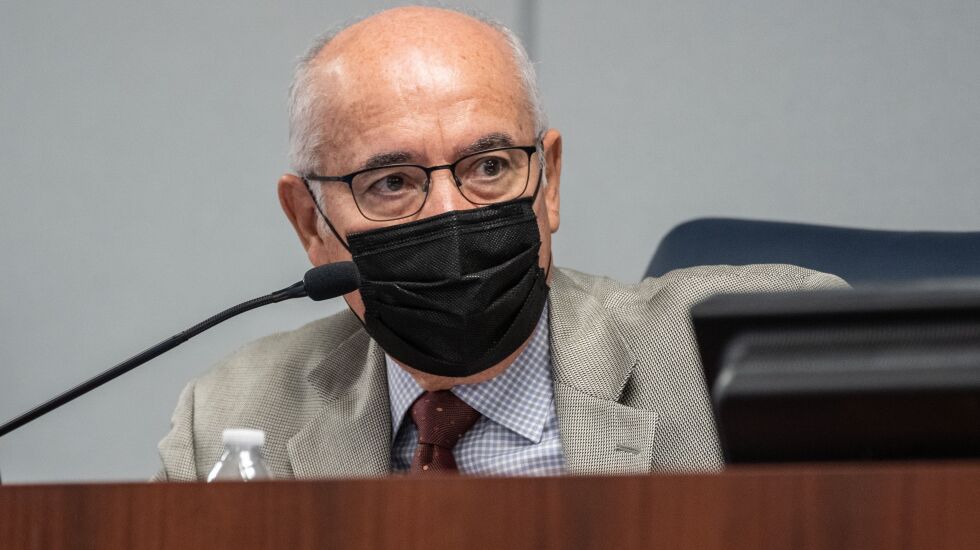
Skyrocketing pension costs shifted to CPS
The new report, ordered by the state ahead of the move to the elected board and released last week, detailed the so-called financial entanglements between City Hall and CPS, including the cost sharing between the two. It was meant to answer whether CPS will be able to operate independently under an elected board without the help of City Hall, a structure the mayor has sought.
A significant financial piece is a growing pension payment since Lightfoot took office. The expense is part of the city’s legal obligation to escalate its funding of the Municipal Employees’ Annuity and Benefit Fund, one of four benefit funds the city pays into along with those for police officers, firefighters and laborers.
About half the city workers in the benefit fund are current or former non-teacher CPS employees such as bus aides and other support staff. But the responsibility under state law to pay into the fund has always been on the city, not CPS.
Lightfoot first asked CPS to pay $60 million toward the pension fund in 2020. That is up to $175 million this year. Projections show CPS’ contribution will skyrocket again over the next few years, with Lightfoot expected to ask CPS to pay up to $250 million next year and an estimated $600 million by 2050.
Lightfoot has shifted other costs, too: Spending on school police officers and crossing guards has historically been handled by City Hall but is now under the school system’s purview.
To offset some of the burden, the mayor has given CPS millions in surplus dollars from tax-increment financing funds. In 2019 the district received $163 million. Those funds over the past three years had more than made up for the shifting expenses. But the payments are one-time revenue. And Lightfoot’s 2023 plans — set to go to a vote before the City Council this week — include $218 million in TIF funds, $30 million less than the latest pension payment.
The entanglement report warned the net result of these “unfunded mandates” and CPS’ structural challenges that make it difficult to raise money on its own could send CPS back to the precarious financial position it faced several years ago when it resorted to “one-time budget tricks” and drawing down reserves in order to avoid substantial cuts to education services.
Del Valle said he hopes the report spurs new discussion for increased education funding. Gov. J.B. Pritzker vowed last week to beef up education spending if he’s re-elected this week.
City Hall officials directed comment to CPS, which denied multiple requests to interview district budget officials.
CPS spokeswoman Mary Fergus said the district has and will continue to work with the General Assembly to secure more state funding and address pension inequities. CPS is already only about two-thirds adequately funded to meet its students’ needs, according to the state’s own metrics, amounting to about $1 billion annually that CPS is missing. Its budget this year was $9.4 billion.
The district plans to advocate for funding to meet that adequacy target as well as adjust the state’s funding formula to account for the MEABF pension costs, Fergus said. CPS expects a response by July 1 of next year on whether state officials believe the district needs more funding to function under an elected board.
Union to mayor: Join our fight for more funding
But with the looming financial challenges, Chicago Teachers Union President Stacy Davis Gates has criticized Lightfoot’s office for not joining forces with the union and making an even bigger effort to secure new funds.
“There’s nothing stopping the mayor from working with us and partnering to find revenue in Springfield [or] in Washington, D.C.,” Davis Gates said. “Instead, we are fighting against her taking money out of our budget.”
To be sure, the cost-sharing between the city and CPS has gone both ways over the years, according to the entanglements report.
The city waives water and sewer fees for CPS that amount to about $11 million a year. City Hall also passes on millions in grants for after-school programs and about $27 million from the CTA for free and reduced bus and train fares for low-income and homeless students. And the city since 1997 has also levied millions in property taxes to cover debt costs from bonds that were used to repair schools and build new ones. The city has committed to doing this until 2031.
Meanwhile, Lightfoot has shifted $16.6 million to CPS for crossing guards and $10 million for school resource officers even though they are employed by the Chicago Police Department. And CPS gives the city about $80 million of federal money it receives for community-based preschool programs.
It’s uncertain how much financial support provided by City Hall and other city agencies will remain with the move to an elected board, the report released last week said.
CPS has limited options for raising money
Longstanding imbalances in state law have created other challenges for CPS. Unlike suburban and downstate districts, Chicago’s school board, for example, can’t use a referendum to ask voters for more taxes to spend on operational costs — a roadblock CPS CEO Pedro Martinez this year called “one of the biggest inequities that has existed since I can remember.” CPS is also obligated to pay most of its teacher pension costs even though the state pays pensions for all other teachers in Illinois.
For now, CPS can cover the MEABF pension expenses shifted by Lightfoot almost entirely because it received $2.8 billion in federal pandemic relief funding over the past couple years. That federal money can’t go directly toward pension payments, but it has helped backfill operational costs instead in addition to helping jumpstart pandemic recovery.
But many school communities believed the federal help could have gone further if not for the new burdens and made that clear earlier this year when they protested in some cases hundreds of thousands of dollars in budget cuts due to declining enrollment.
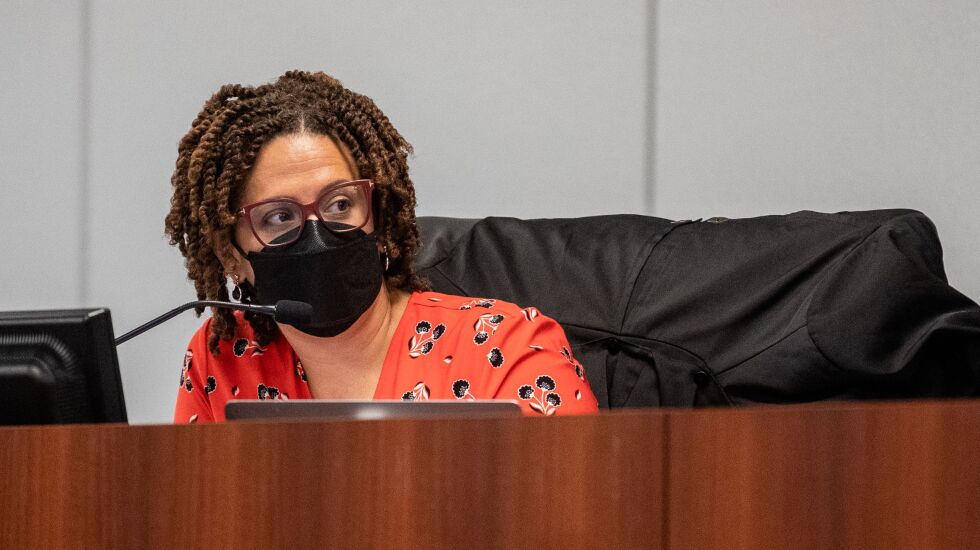
The process by which these payments have been established has also irked many at CPS, including some school board members. The city has essentially banked on the district agreeing to the increased pension costs each year since the City Council approves its budget in November, months before CPS passes its own budget the following summer.
Unless board members choose to defy the woman who appointed them, CPS officials and the school board can end up taking heat from school communities who feel they haven’t received enough resources for their kids to thrive.
“I’m not comfortable with having City Hall balance any more of their budget on CPS’ budget,” board member Elizabeth Todd-Breland told her colleagues in May as they debated whether to rubber stamp the mayor’s plan. (She declined to comment on the new report this week.)
“You give us new expenses, and we have no ability to get new revenue for it. And so the city is creating a structural deficit, or exacerbating our own structural deficit, by shifting expenses to CPS.”
Todd-Breland, was one of two board members to vote against authorizing the payment.
”This is not in the best interest of the children of CPS,” she said.
Contributing: Sarah Karp



